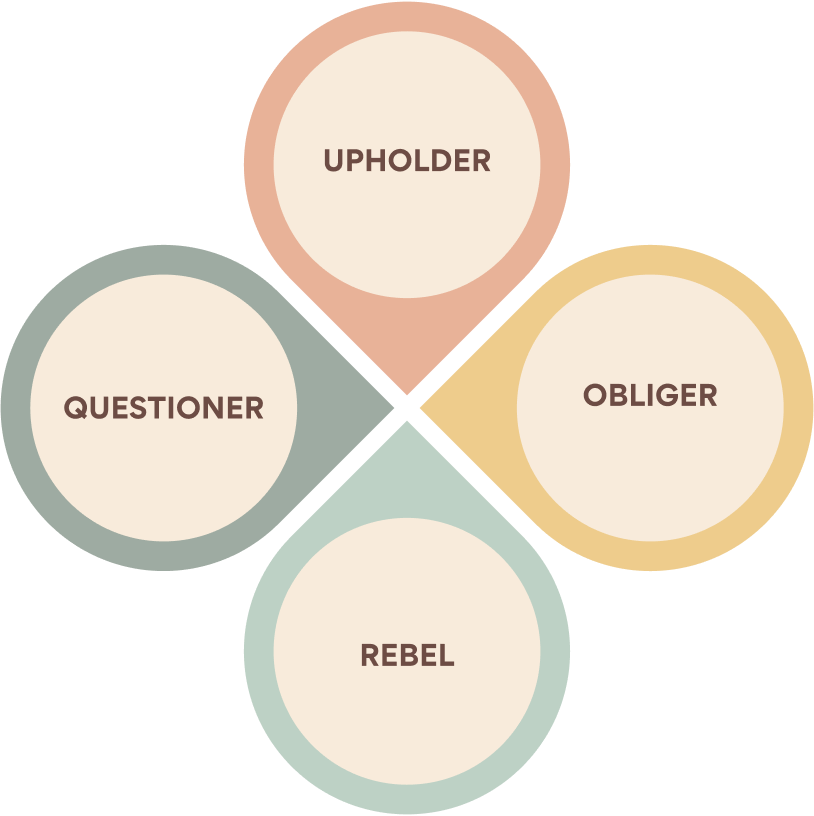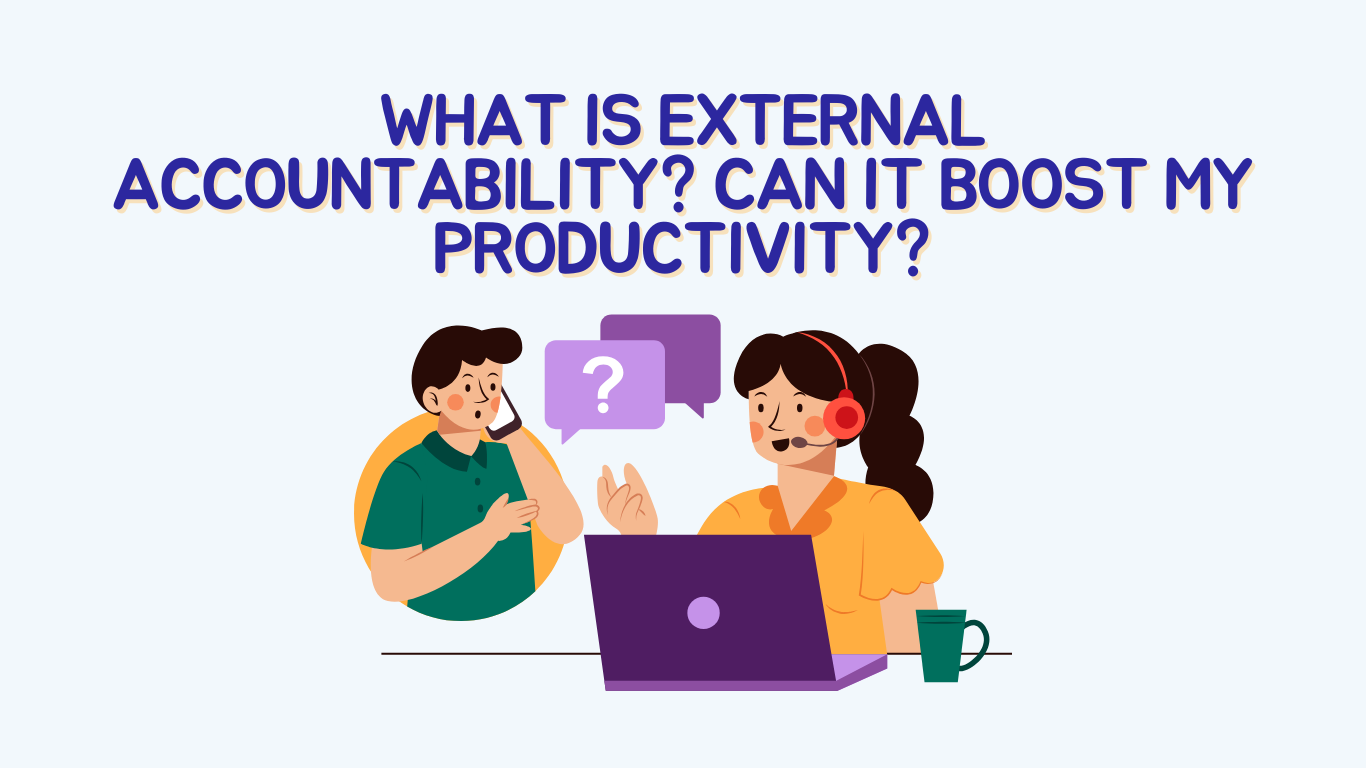External accountability means being answerable to others for your commitments. Unlike internal accountability, where you rely on self-motivation, external accountability involves others monitoring your progress.
This added layer can boost your drive and help you reach your goals. In this article, we’ll explore how external accountability works and offer practical tips to harness its power for better productivity and goal achievement.

Key Takeaways
- External accountability boosts motivation by creating a sense of responsibility to others, enhancing both internal and external commitment.
- Choosing the right accountability partner and establishing clear goals and check-ins are vital for maintaining motivation and support in achieving your objectives.
- Utilizing frameworks like the Four Tendencies can help tailor accountability systems to individual motivational styles for greater effectiveness.

Understanding External Accountability
External accountability is all about being answerable to others, unlike internal accountability, which focuses on self-commitment.
When you know someone else is keeping an eye on your progress, it adds an extra layer of motivation. Think about the times you felt more driven because you didn’t want to let someone else down. That’s the magic of external accountability.
But here’s the interesting part: external accountability actually enhances internal accountability. It does so by fostering an environment that encourages you to stick to your commitments. When you feel responsible to another person, it creates intrinsic motivation. Understanding this balance helps you recognize your commitments and stay true to them.
Combining internal and external accountability creates a robust system that keeps you flexible and motivated. It’s like having a safety net that catches you when your internal motivation wanes. Now, let’s see how you can leverage this powerful tool in your daily life.

The Role of Accountability Partners
Accountability partners are the cornerstone of external accountability. An accountability partner helps maintain commitment towards specific goals by providing regular support and check-ins.
Imagine having a friend who checks in on your progress and keeps you motivated. This sense of obligation can significantly enhance your motivation to achieve your goals.
Sharing your goals publicly or with a partner can also enhance accountability, as the fear of judgment can motivate you to stay on track. However, choosing a compatible accountability partner is crucial for effective mutual support and shared commitment.
Trust, open communication, and understanding between partners are key to a positive accountability partnership.
Maximizing the effectiveness of an accountability partnership involves establishing specific goals and check-in schedules. Study or work groups can create a supportive environment that helps maintain focus and accountability. Scheduling workout sessions with a friend can increase the likelihood of attendance, demonstrating social accountability’s effectiveness.

How to Find the Right Accountability Partner
Finding the right accountability partner is crucial for effective external accountability. Networking with coworkers can reveal potential candidates for accountability partnerships. Seek individuals who share similar goals and are motivated to achieve them.
Evaluating the time spent together can gauge comfort and trust in a potential partnership. A good accountability partner should be someone you feel comfortable with, who can offer constructive feedback and encouragement.
It’s important to ensure that both parties are equally committed and can provide mutual support. If you can’t find a friend, coworker, or family member who shares your intentions and priorities, an accountability coach could be an ideal alternative.

How an Accountability Coach Can Help Keep You Productive
An accountability coach provides ongoing support to ensure continuous progress towards your goals, especially during challenging times. An accountability coach fosters a sense of obligation, enhancing motivation and promoting action towards achieving goals.
The primary role of an accountability coach is to enhance your performance and consistency in working towards your objectives. Regular check-ins and constructive feedback from a coach can keep you on track and help navigate any obstacles.
In essence, an accountability coach acts as a dedicated partner who is invested in your success, helping you stay committed and motivated to achieve your professional goals and personal goals.

External Accountability in the Workplace
Knowing who you are accountable to can significantly enhance your motivation and support within organizations. Involving employees in the goal-setting process increases their understanding and confidence in achieving those goals. When employees feel included, they are more likely to commit to the objectives and work diligently towards them.
Recognition of employee achievements is crucial for reinforcing a culture of accountability. It’s not just about setting goals but also about celebrating the milestones along the way. This recognition can lead to long-term success by fostering an environment where everyone feels valued and driven.
Understanding the different tendencies of individuals is also important. For instance, Questioners will comply with expectations only if they find them rational and justifiable, while Rebels resist both external and internal expectations, asserting their independence. By recognizing these tendencies, you can tailor your approach to accountability, ensuring it aligns with each individual’s motivational style.

The Four Tendencies Framework
Gretchen Rubin developed the Four Tendencies framework to categorize how people respond to expectations, including outer expectations. This framework is incredibly insightful, helping you understand your own and others’ behavior in response to internal and external expectations.
Upholders are driven by both internal standards and external stakeholders, making them highly reliable in meeting commitments. On the other hand, Obligers are motivated by the need for accountability from others and often perform best when they know someone else is counting on them. This makes external accountability particularly effective for Obligers.
Many individuals need external accountability to effectively use traditional methods like journals and calendars for their productivity. Understanding these tendencies can help you create a more tailored and effective accountability system that resonates with your unique motivational drivers.

Overcoming Challenges with External Accountability
One common challenge individuals face with personal accountability is the inability to maintain consistent habits and routines. Procrastination is another major obstacle that can hinder progress. Recognizing these challenges is the first step towards overcoming them.
Understanding your tendency can significantly improve decision-making and reduce stress. For instance, if you’re an Obliger, knowing that you thrive on external accountability can help you seek out the right support system.

Real-Life Examples of External Accountability
Many individuals have reported increased goal achievement by working with accountability partners and sharing their progress regularly. Some people have successfully completed their fitness journeys by publicly committing to their goals on social media, receiving encouragement from followers. Likewise, many friends have started a book club as a form of mutual accountability, significantly increasing their reading habits.
Companies have seen remarkable benefits from adopting external accountability measures to track progress. A company that instituted regular team check-ins for project updates saw a 30% increase in project completion rates. A tech startup implemented peer reviews to encourage accountability around coding standards and saw a decrease in bugs by 25%.
These examples highlight how external accountability can drive productivity and success in various settings. The collective success stories from individuals and companies illustrate the powerful role of external accountability in reaching goals. Embracing accountability, both personally and organizationally, fosters a culture of teamwork, transparency, and enhanced productivity.

Creating a Personal Accountability System
Creating a personal accountability system starts with clearly outlining your goals. This clarity helps attract a partner who can assist you effectively. Finding a partner with aligned values and goals is essential for effective accountability.
Publicly committing to a goal can strongly incentivize following through on personal commitments. Making a personal bet, such as promising to wear a disliked team’s apparel if you fail to practice regularly, can also add an extra layer of motivation.
Clear roles and responsibility help individuals take ownership of their tasks. Being honest about mistakes fosters integrity and encourages others to do the same. Timely apologies and proactive measures can facilitate resolution in problematic situations.
Effective time management is key for meeting deadlines and maintaining reliability. Recognizing personal limits prevents overcommitment and ensures task completion. Being receptive to feedback aids in personal growth and improvement.

Summary
In summary, external accountability is a powerful tool that can significantly boost your productivity. By understanding the distinction between internal and external accountability, leveraging accountability partners, and committing to the goals that matter the most, you create a robust support system that keeps you on track.
Finding the right accountability partner and creating a personal accountability system are essential steps towards achieving your goals. An accountability coach can provide the support and motivation needed to stay productive and committed.
Embrace external accountability and unlock your productivity potential today!

Frequently Asked Questions
What is the difference between internal and external accountability?
The key difference is that internal accountability is all about your own self-commitment, whereas external accountability means being responsible to others. Think of internal accountability as your personal motivation and external accountability as a way to stay on track with the support of others.
How do I find the right accountability partner?
Finding the right accountability partner is all about compatibility and trust, so start by networking with coworkers or friends and having candid conversations to see if you click. Pay attention to how comfortable you feel together and the quality of time spent, as these factors can really determine your success.
What challenges might I face with external accountability?
You might struggle with staying consistent and dealing with procrastination. Finding your personal motivation and setting a solid routine can really help you tackle these challenges.
How can an accountability coach help me stay productive?
An accountability coach can significantly boost your productivity by offering consistent support and regular check-ins to keep you focused on your goals. With their constructive feedback, you’ll stay on track and motivated to achieve more.

